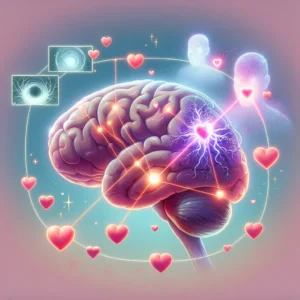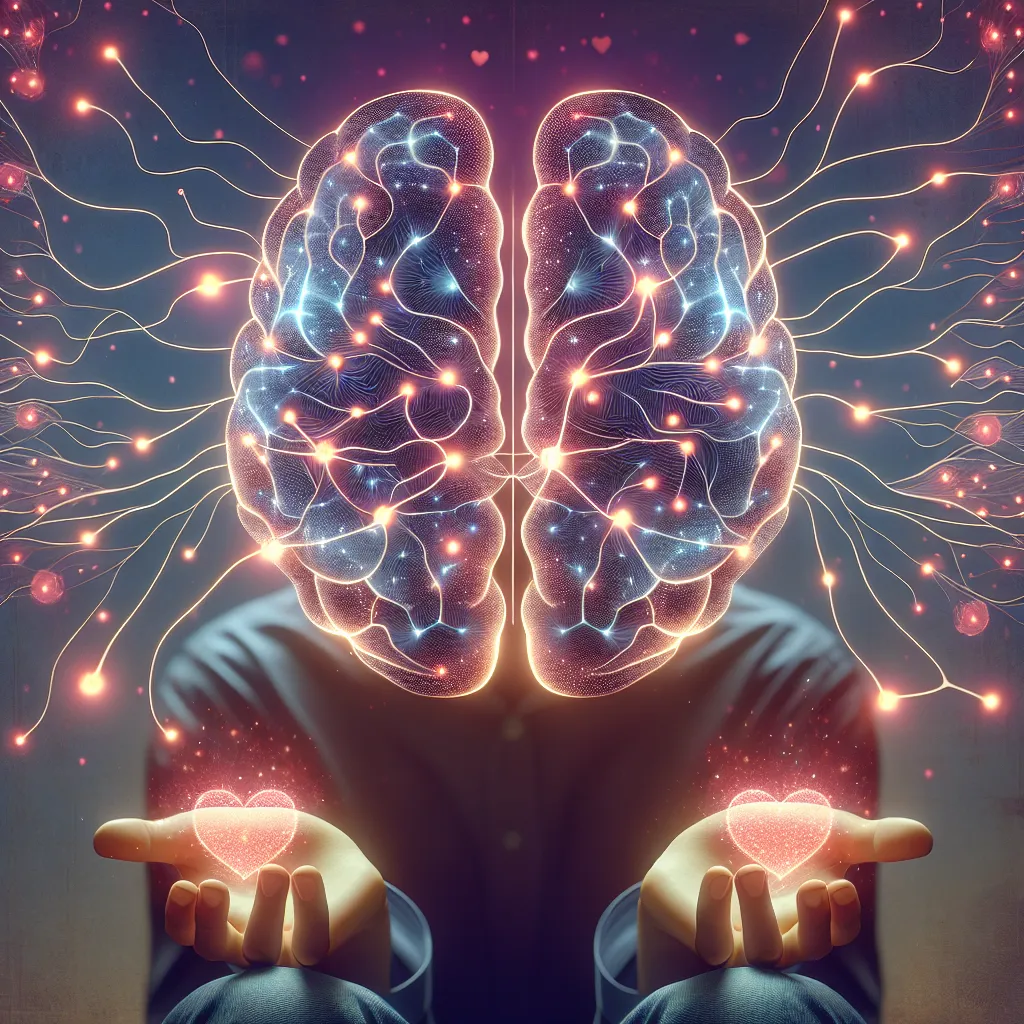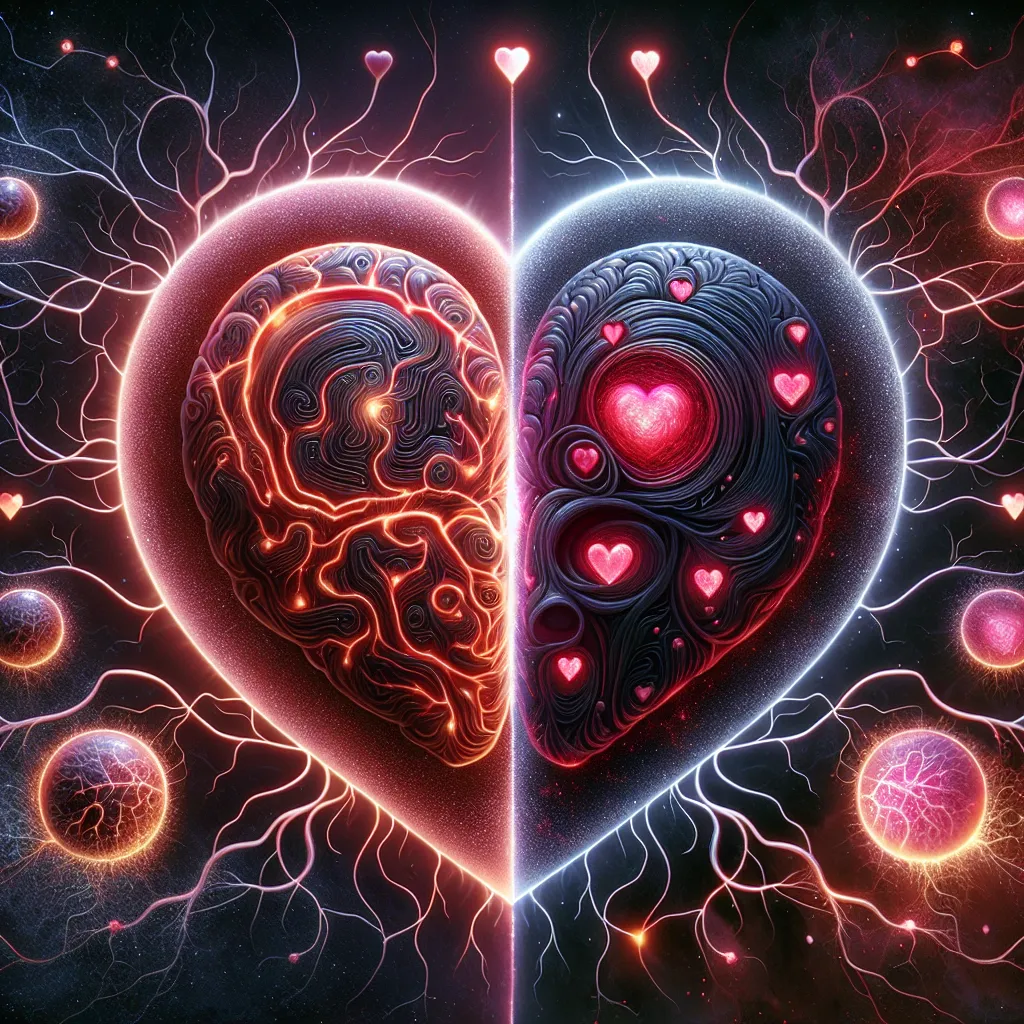Hello, relationship seekers!
Today, we’re diving deep into an important question about relationships: “How does the brain’s reward circuit fuel fantasies of reuniting with an ex?”
The Direct Answer
The brain’s reward circuit plays a significant role in fueling fantasies of reuniting with an ex. This is primarily due to the release of chemicals like dopamine and oxytocin, which are associated with pleasure and bonding. When you’re in a relationship, these chemicals are often released in response to your partner, creating a strong emotional bond. Post-breakup, your brain may continue to associate your ex-partner with these positive feelings, leading to fantasies of reuniting.
Now, let’s explore the extensive evidence and details that support this answer:
1. Understanding the Brain’s Reward Circuit
The brain’s reward circuit is a complex system that governs our responses to pleasure and reward. It’s a critical component in the formation and maintenance of romantic relationships.
A. Role of Dopamine and Oxytocin
Dopamine and oxytocin are two key chemicals involved in the brain’s reward circuit:
– Expert Perspectives: Dr. Helen Fisher, a biological anthropologist, suggests that dopamine is associated with feelings of romantic love. Similarly, Dr. Paul Zak, a neuroeconomist, notes that oxytocin is tied to bonding and trust in relationships.
– Psychological Research: Studies have shown increased activity in dopamine-rich areas of the brain when individuals view images of their romantic partners. Similarly, oxytocin is often referred to as the “love hormone” due to its role in bonding.
– Real-World Examples: This explains why we often feel elated and connected to our partners in a relationship – it’s the brain’s reward circuit at work!
B. The Brain’s Reward Circuit Post-Breakup
Post-breakup, the brain’s reward circuit can contribute to longing for an ex:
– Historical Context: Historically, pair-bonding has been critical for survival, so our brains are wired to resist the end of relationships.
– Common Challenges: Post-breakup, individuals often report feelings of withdrawal, similar to drug addicts. This is due to the sudden absence of the dopamine and oxytocin rush associated with the ex-partner.
– Practical Applications: Understanding this can help individuals manage post-breakup emotions more effectively.
C. Fantasies and the Reward Circuit
Fantasies of reuniting with an ex can be understood as the brain’s way of seeking the dopamine and oxytocin rush associated with the ex-partner. It’s a way of self-soothing during the difficult post-breakup period.
2. Breakups and the Brain
Breakups are often painful and difficult, and understanding the brain’s response can help navigate this challenging time.
A. The Pain of Rejection
The brain’s response to rejection is similar to its response to physical pain:
1. Rejection Activates the Pain Pathways: Research has shown that the same brain regions light up in response to both physical pain and social rejection.
2. Intense Emotional Response: This explains why breakups can be so emotionally intense and why rejection can feel physically painful.
3. Heightened Sensitivity: The brain also becomes more sensitive to rejection and negative emotions post-breakup, potentially leading to a cycle of pain and longing.
B. The Addiction Model of Love
The intense emotions associated with breakups have led some researchers to liken love to an addiction:
– Similarities to Drug Addiction: The withdrawal symptoms post-breakup can be similar to those experienced by drug addicts, including cravings, obsession, and relapse.
– Expert Opinions: Dr. Helen Fisher suggests that “romantic love is an addiction” due to its impact on the brain’s reward circuit.
C. Practical Implications
Understanding the brain’s response to breakups can help in facilitating recovery:
– Self-Care: Self-care activities can help soothe the brain’s reward circuit, reducing the intensity of post-breakup longing.
– Seeking Support: Social support can provide an alternative source of oxytocin, helping to ease the pain of a breakup.
3. Managing Post-Breakup Fantasies
While it’s natural to fantasize about reuniting with an ex, it’s important to manage these fantasies to facilitate healing.
A. Reality vs Fantasy
Fantasies often involve idealized versions of the ex-partner or relationship:
– Idealization: After a breakup, it’s common to remember the good times and overlook the reasons for the breakup.
– The Role of Nostalgia: Nostalgia can further fuel idealization, leading to more intense fantasies of reuniting.
– Practical Considerations: Remembering the reality of the relationship, including the reasons for the breakup, can help counteract idealization.
B. Alternative Perspectives
It’s important to remember that these fantasies are a normal part of the healing process:
– Normalizing the Experience: Fantasizing about an ex doesn’t necessarily mean you should reunite. It’s a common part of the brain’s response to breakups.
– Expert Opinions: Relationship experts suggest that these fantasies may lessen over time as the brain adjusts to the absence of the ex-partner.
C. Future Possibilities
With time and self-care, the intensity of these fantasies can reduce:
– The Brain’s Adaptability: The brain is capable of adapting to new circumstances, including breakups.
– Healing Takes Time: Over time, the brain’s association of the ex-partner with the reward circuit can lessen, reducing the intensity of fantasies.
4. Additional Context and Considerations
While the brain’s reward circuit plays a key role in post-breakup fantasies, other factors like individual personality traits, the nature of the breakup, and social support also play a role.
Conclusion: The Definitive Answer
The brain’s reward circuit fuels fantasies of reuniting with an ex by associating the ex-partner with the release of pleasure and bonding chemicals like dopamine and oxytocin. Understanding this can help manage post-breakup emotions and facilitate healing. It’s important to remember that these fantasies are a normal part of the healing process and do not necessarily mean you should reunite with your ex.
This understanding can empower individuals to navigate post-breakup emotions more effectively, promoting healthier relationships with self and others in the future.



